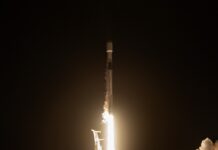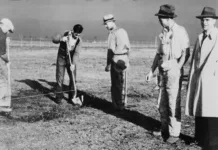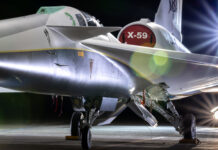Israeli Military Launches Strikes on Houthi Targets in Yemen Following Tel Aviv Attack
In a significant escalation of regional tensions, the Israeli military has carried out airstrikes on Houthi targets in Yemen. This operation marks a pivotal moment, as it is reportedly the first instance of Israeli military action on Yemeni soil since the Israel-Hamas conflict erupted in October. The strikes were a direct response to an attack on Tel Aviv, which the Israeli government attributes to the Houthi movement, an Iranian-backed group based in Yemen.
The Context and Background
The conflict between Israel and Hamas has been intensifying since October, leading to a series of retaliatory actions and widespread violence. The recent attack on Tel Aviv has added another layer of complexity to the already volatile situation. The Houthis, who control significant portions of Yemen, have been involved in a protracted conflict with a Saudi-led coalition since 2015. This coalition, which includes several Arab states, is supported by Western nations, including the United States. The Houthis have received backing from Iran, further complicating the regional dynamics.
Details of the Strike
According to reports from various sources, including POLITICO, the Israeli airstrikes targeted Houthi military installations and missile sites in Yemen. The Israeli Defense Forces (IDF) stated that the strikes were a defensive measure aimed at neutralizing immediate threats posed by the Houthi movement. The IDF’s spokesperson emphasized that the targets were carefully selected to minimize civilian casualties and collateral damage.
For more detailed information, refer to this news article by POLITICO.
Reactions and Implications
The airstrikes have sparked a range of reactions from the international community. The United States has expressed support for Israel’s right to defend itself, while urging all parties to exercise restraint to avoid further escalation. On the other hand, Iran has condemned the strikes, calling them an act of aggression and a violation of Yemeni sovereignty.
Historical Context
The involvement of the Houthi movement in the Israel-Hamas conflict is a new development. Historically, the Houthis have focused their efforts on fighting the Saudi-led coalition in Yemen. However, their recent attack on Tel Aviv suggests a shift in their strategy, possibly influenced by their Iranian allies. This incident also highlights the interconnected nature of conflicts in the Middle East, where local skirmishes can quickly escalate into broader regional confrontations.
Technical Aspects
The airstrikes involved advanced military technology, including precision-guided munitions and real-time intelligence. The use of such technology is aimed at ensuring the accuracy of the strikes, thereby reducing the likelihood of unintended casualties. The coordination and execution of these strikes demonstrate Israel’s military capabilities and its readiness to respond to threats beyond its immediate borders.
Broader Implications
This development has significant implications for regional security and stability. The airstrikes on Yemeni soil could provoke a broader conflict, drawing in other regional powers and potentially leading to a wider war. It also raises questions about the future of the Yemeni conflict, which has already caused a humanitarian crisis of unprecedented proportions. The international community must navigate these complexities carefully to avoid further deterioration of the situation.
Public Opinion
Public opinion on this issue is deeply divided. In Israel, many view the airstrikes as a necessary measure to protect national security. However, there are also voices calling for a more diplomatic approach to resolving the conflict. In Yemen, the strikes have been met with outrage, with many viewing them as an unwarranted act of aggression. The broader Arab world is also closely watching these developments, with varying degrees of support and condemnation.
Conclusion
The Israeli airstrikes on Houthi targets in Yemen mark a significant escalation in the ongoing conflict in the Middle East. This development highlights the complex and interconnected nature of regional conflicts, where actions in one country can have far-reaching implications for others. As the situation continues to evolve, it is crucial for the international community to engage in diplomatic efforts to de-escalate tensions and work towards a sustainable resolution.
For more information, readers can refer to the detailed report by POLITICO.
Additional Information
It is worth noting that this news has been trending highly on Google searches today, reflecting widespread public interest and concern. The situation remains fluid, and further developments are likely in the coming days. Staying informed through reliable news sources is essential for understanding the complexities of this conflict and its potential impact on global security.
Good to Know
The Houthi movement, officially known as Ansar Allah, emerged from northern Yemen and has been a significant player in the Yemeni Civil War. Their slogan, "God is great, death to the US, death to Israel, curse the Jews, and victory for Islam," encapsulates their anti-Western and anti-Israeli stance, which is partly why their involvement in this conflict is particularly concerning.
The humanitarian crisis in Yemen has been described by the United Nations as the world’s worst, with millions facing starvation and lack of basic medical care. The recent strikes are likely to exacerbate these conditions, making international humanitarian assistance even more crucial.
Review and Reaction
Experts and analysts are divided on the long-term consequences of Israel’s actions. Some argue that it sends a strong message to regional actors about Israel’s determination to defend its sovereignty. Others caution that it may lead to unintended consequences, including a potential backlash that could draw more regional players into the conflict.
In summary, the Israeli military’s recent airstrikes on Houthi targets in Yemen represent a significant escalation in regional tensions. The incident underscores the complex interplay of local and international dynamics in the Middle East, and the urgent need for diplomatic solutions to prevent further bloodshed.


































